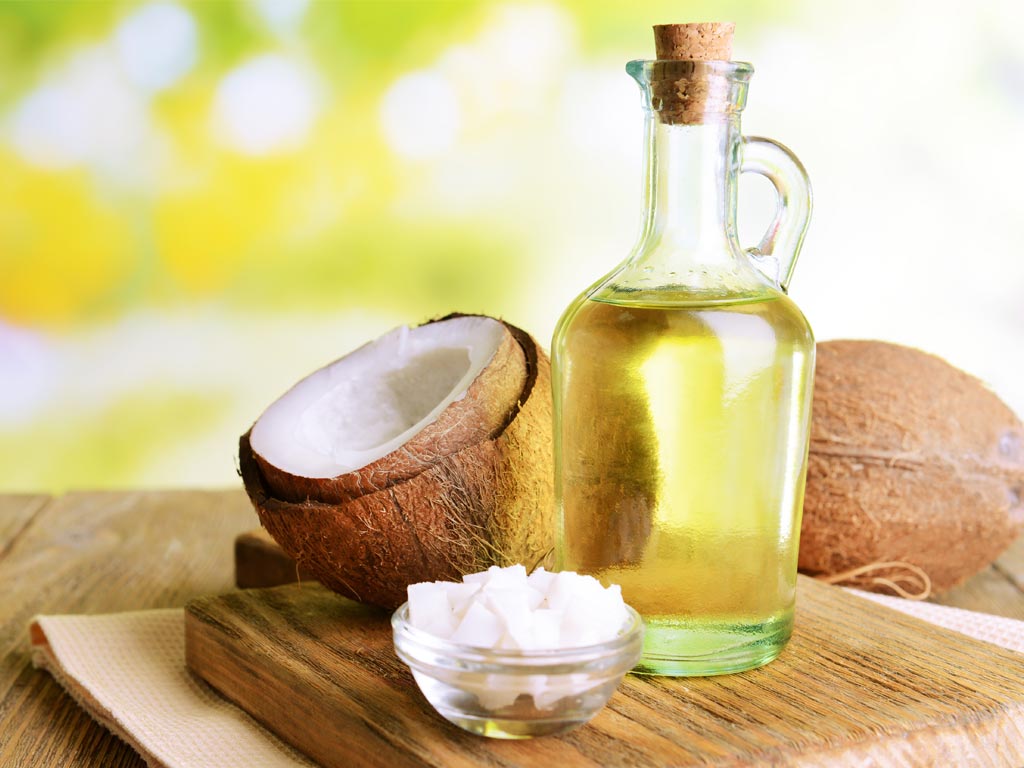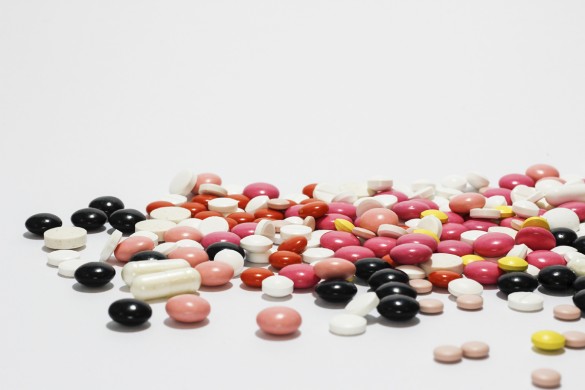Written By Dr Senani Wijesena
Since the Framingham Heart Study reported that high serum cholesterol was a major risk factor for coronary heart disease several decades ago, there has been an aggressive campaign in the medical community to decrease serum cholesterol.
It has been a widely accepted belief since then that dietary saturated fats and dietary cholesterol cause an increase in serum total cholesterol as well as LDL (bad) cholesterol and thereby increase the risk of heart disease if consumed. The role of dietary cholesterol in raising blood cholesterol has been refuted since these earlier studies and the role of saturated fat is more complex and will be discussed further.
Previously held beliefs that high LDL cholesterol leads to blocked arteries (atherosclerosis) are no longer being supported by current/better studies. It is thought that the ratio of good (HDL) cholesterol and bad (LDL) cholesterol and total cholesterol to HDL are more important risk factors for atherosclerosis than total cholesterol or LDL levels. Further to this, only oxidized LDL cholesterol is associated with atheroma development.
Over the years it became clear that high levels of LDL (low density lipoprotein) cholesterol circulating in the blood are susceptible to lipid peroxidation, which results in the oxidized LDL being taken up by macrophages (white cells) lining certain arteries, particularly around the heart, leading to fatty deposits and atherosclerosis. Atherosclerosis which causes narrowing of the arteries and lack of blood supply to the heart and other tissues, results in angina and heart attack (AMI).
It is now known that if LDL cholesterol is not oxidized, however, it will not be taken up by the macrophages in the arterial wall. Hence total un-oxidized LDL levels by itself are not associated with increased risk of atherosclerosis.
Although this mechanism provides a role for high serum oxidized LDL cholesterol causing atherosclerosis, evidence of the involvement of saturated fats in this process is lacking, even though it is well established that a diet high in saturated fats increases serum cholesterol and a diet high in un-oxidized polyunsaturated oil decreases serum cholesterol.
In fact, polyunsaturated fats (such as sunflower, peanut oils) and not saturated fats, are the types of fats that are easily oxidized and result in increased levels of oxidized LDL and atherogenesis. Saturated fats are known not to be susceptible to lipid peroxidation, hence, although they may raise total LDL levels and total cholesterol, including HDL, they do not become incorporated into plaques in the arteries.

In addition, polyunsaturated fats are converted to trans fats when they are heated to high temperatures (smoking point) or if they are hydrogenated/processed (e.g. margarine). These trans fats are known to elevate LDL cholesterol and lower HDL cholesterol (good cholesterol) and increases risk for cardiovascular disease. Saturated fats elevate both HDL and LDL cholesterol, hence, have no detrimental effect on the ratio of good to bad cholesterol in the bloodstream.
In recent years, the role of saturated fats in causing atherosclerosis has been questioned and further studies have been undertaken to elucidate the answers. In addition, the role of high refined carbohydrate diets and low omega 3 fats, and other markers of increased risk of atherosclerosis and cardiovascular disease such as elevated small dense LDL particle size, elevated triglyceride levels and low total:HDL cholesterol ratio has been noted as being more significant than raised total cholesterol or LDL levels. The presence of oxidized phospholipids and Lp (a) also are other markers associated with inflammation and promote atherogenesis.
It is now known that replacing fats with carbohydrates (starches and sugars) leads to an increase in these negative markers and an increased risk of atherosclerosis. The suggestion by the medical community to decrease saturated fats and increase carbohydrates and PUFAs (omega 6), in fact, is partly responsible for the current increased incidence of cardiovascular disease and metabolic syndrome and obesity in the western world.
Inflammation is now known to be a central mechanism underlying the pathogenesis of atherosclerosis, cardiovascular disease and its associated conditions, insulin resistance, metabolic syndrome, obesity and type 2 Diabetes Mellitus.
Inflammation causes the production of free radicals which oxidize LDL particles as well as decrease sensitivity of tissues to insulin. Certain types of fats e.g. omega 6 polyunsaturated fats (grains, vegetable oils and linoleic acid in meats), and trans fats increase inflammation. Other fats such as omega 3 fatty acids (e.g. fish, walnuts) and medium chain saturated fatty acids such as that found in coconut oil decrease inflammation.
Omega 6 fats are notorious for lipid peroxidation and generate toxic free radicals. The starting point of atheroma formation is the deposition of peroxide laden LDL in the arteries. High intake of omega 6 oils will cause lowering of HDL, elevation of plasma triglycerides and will promote platelet aggregation; all of which favour heart attacks.
Studies have also shown that even moderate amounts of omega 3 PUFAs in the diet as opposed to omega 6 PUFAs result in the reduction of inflammatory responses that are reflected in the significant reduction of coronary events observed with increasing dietary PUFAs. These studies also indicate that dietary saturated fats (SFA)do not promote inflammation and that predominately SFAs in the diet result in less inflammation than diets with omega 6 PUFAS (Linoleic acid in grains, vegetable oils).
Recent studies have shown, there was no significant evidence for concluding that dietary saturated fat is associated with an increased risk of cardiovascular disease. In fact a systematic review found insufficient evidence to support an association (positive or negative) between coronary artery disease and several dietary factors including SFAs, alpha linolenic acid (omega 3), total fat, meat, eggs and milk.
So where do we stand with Coconut fat?
Campaigns were unfairly waged against tropical oils (palm and coconut oil) in the early 1980’s because of their high levels of saturated fats (SFAs). It has been shown since, that the SFAs in coconut oil increase HDL cholesterol more than LDL cholesterol to give a more favorable lipid profile relative to dietary carbohydrates. Various studies, in fact, have shown that coconut oil does not increase total serum cholesterol.
Claims that tropical oils with a high SFA content increase the risk of CAD lack clear scientific evidence to that effect. Indeed, countries with high intake of tropical oils e.g. Pacific Islands have some of the lowest rates of heart disease in the world. Studies of plaques in the diseased coronary arteries contain mainly long chain fatty acids (seen in other oil e.g. polyunsaturated) and not medium chain fatty acids (of coconut oil).
Coconut oil contains predominantly shorter chain and medium chain length saturated fats such as lauric acid, capric acid and myristic acid. Many of the shorter chain fatty acids found in coconut oil have beneficial health effects and are not easily oxidized or produce free radicals.
Diets rich in coconut oils have also been shown to lower other risk factors for coronary artery disease such as tissue plasminogen activator antigen and Lp (a). The medium chain SFA in coconut oil has been shown to increase the protective HDL cholesterol and do not increase small dense LDL particles in the circulation.
Coconut oil, which is rich in lauric acid has less effect on total cholesterol and LDL cholesterol and is a better alternative to butter and hydrogenated vegetable fats. In addition, the polyphenol (antioxidant) content of virgin coconut oil was found to be capable of preventing LDL oxidation.
Many health organizations currently advise against the consumption of high amounts of coconut oil due to its high level of saturated fat, including US Department of Heath and Human services (USDA); World Health Organization (WHO) and American Heart association.
In the US and world wide, successful campaigns were undertaken since the 1980’s to force food manufacturers to remove tropical oils from their products and to replace them with hydrogenated vegetable oils (PUFAs) such as industrial corn and soybean based oils, resulting in increased intakes of deleterious trans-fatty acids. In this public campaign, consumers were convinced that tropical oils (coconut and palm oil) contributed to their risk of coronary heart disease, despite lack of scientific evidence to support.
A scientific paper written in 2013 on coconut oil indicated that there are many animal and human studies in world literature to disprove allegations about coconut oil enhancing the risk of coronary artery disease. In addition to this. Willer in an editorial summarized that “no relation between saturated fat intake and risk of coronary artery disease was observed in the most informative prospective study to date”.
Medium chain fatty acids such as lauric acid found in coconut oil are easily metabolized by cells and are not deposited in arteries or accumulate as body fat. This is due to the fact that they do not require the help of lipoproteins such as LDL to transport them, due to their shorter chain length which allows them to be directly absorbed from the intestine and sent straight to the liver to be rapidly metabolized for energy production. Because of this, medium chain fatty acids such as coconut oil do not participate in the biosynthesis and transport of cholesterol. This is unlike long chain fatty acids such as vegetable oils which when incorporated into cholesterol lipoprotein particles when oxidized make them susceptible to deposition in the arterial lining.
In addition to the beneficial effects of coconut oil on cardiovascular health, this fat and coconut fibers carry many other positive health benefits.
These include, in summary,
- antimicrobial effects, inhibiting infections caused by yeasts, bacteria and viruses.
- carries anti-inflammatory properties reducing intestinal inflammation in inflammatory bowel disease and IBS.
- Has excellent anti-oxidant properties due to its polyphenol content.
- Replacing long chain fatty acids such as that found in meat, vegetable oils and butter with medium chain fats in coconut oil results in a decrease in body weight and fat deposition.
- reduces dental caries and plaque formation.
- anti-diabetic effect by modulating enzymes that control carbohydrate metabolism.
- anticancer properties.
Hence, in very recent times, due to the lack of scientific evidence of the detrimental health effects and numerous health benefits of coconut oil, its addition to a healthy diet is slowly being advocated by the medical community and media.
References
- Dietary Fats and Health: Dietary recommendations in the context of scientific evidence. Glen D Lawrence; Adv Nutr 4 294-302, 2013
- Saturated Fat and Health: Recent advances in research. Richard Feinman. Lipids (2010), 45: 891-892
- Saturated fat, carbohydrate and cardiovascular disease. Patty W Siri Tarino et al, Am J Clin Nutr, 2010; 91: 502-9
- Coconut oil predicts a beneficial lipid profile in pre-menopausal women in the Philippines. Alan B Feranil et al. Asia Pac JClin Nutr 2011; 20(2): 190-95
- Coconut oil and Health controversy: A review. Damodaran, M Vasudevan. International journal of health and rehabilitation services, Volume 2, issue 3, 157-165, 2013
© 2016, Dr Senani Wijesena. All rights reserved. Unauthorized duplication or reproduction of this article is not permitted.






